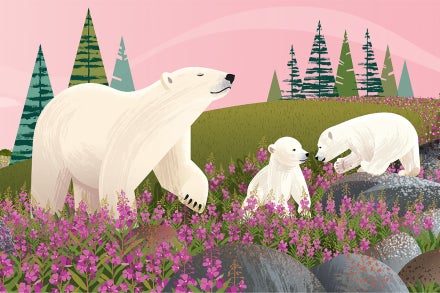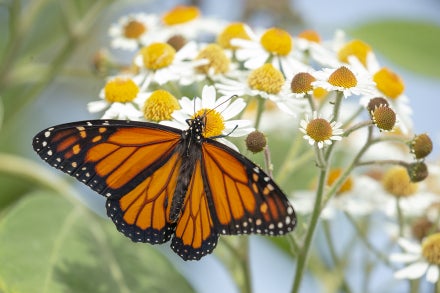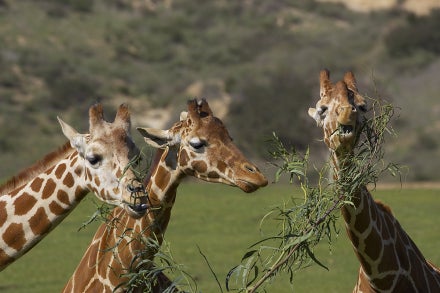
Zoo InternQuest is a seven-week career exploration program for San Diego County high school juniors and seniors. Students have the unique opportunity to meet professionals working for the San Diego Zoo, Safari Park, and Institute for Conservation Research, to learn about their jobs, and then blog about their experience online. Follow their adventures here on the Zoo’s website!

Lead Animal Trainer, Kelly Elkins, has been training animals for many years now. She took what she has learned from her experiences so far and gave the interns amazing career advice such as never settling for a job you don’t love. Look out world, these interns are coming in full force in search of success!
Going from a dance teacher to Lead Animal Trainer at the San Diego Zoo is a pretty big jump. Kelly Elkins has done performing arts her whole life, but she also knew she wanted to work with animals, so after 15 years of working at a dance studio she made a switch. During her time teaching she was also studying to be a veterinary technician but wasn't as interested in the medical aspect. It was when she applied and got accepted to Moorpark College’s Exotic Animal Training and Management Program, she dropped everything to study for two years. A month after graduating from the program, she got hired at the San Diego Zoo and after 20 years she hasn't regretted it at all. As a lead animal trainer she works training animals but also her fellow trainers, helping them improve their techniques. There is always something to work on as she constantly strives to build her relationship with these animals and also improve her technique so it's the most positive experience for the animal. There is a big element of choice in her work, where it is always the animals’ choice whether they want to participate in the training session, ensuring they always have a way to exit the situation if they choose. Another aspect of her job is outreach. Ms. Elkins always wanted a job working with animals but also to help conserve various species, and she found a way to help through outreach. By educating and connecting the public to different species, she strives to get people invested in their conservation and inspires them to help in any way they can.

This talented animal, showing off its amazing climbing skills, is a binturong. A fun fact is that when they get excited, they smell like buttered popcorn. If that doesn’t spark your interest to come see this animal in person, I don’t know what will! Check out the Animals in Action experience at the Zoo to learn more!
Out of all of the incredible animals the interns witnessed while meeting Ms. Elkins, the binturong was probably the most memorable. These animals are from southeast Asia and have distinct adaptations that help them perform different tasks. For example, their prehensile tails act like hands to help them hunt and climb. These animals love to eat strangler figs, are great seed dispersers, and most of them smell like buttered popcorn when excited! Unfortunately, these animals are listed as vulnerable due to continuous growth of the palm oil trade and the pet trade. Palm oil harvesting is a major driver of deforestation of some of the world's most biodiverse forests, destroying the habitat of many species, including the binturong. In conjunction with them being traded as pets because of their intelligence and cuteness, they are under quite a few stressors. Though binturongs are sometimes docile, they can be extremely powerful and aggressive, and should not be kept as pets. Through the Animals in Action experience at the Zoo, Ms. Elkins and her colleagues aim to educate and discourage the public from keeping wild animals as pets.

This may look like a normal dog to you, but this is actually one of the cheetah companions at the Zoo. In this photo, Honey proudly sits after finding the fake “cheetah scat” and waits for further instruction.
Ms. Elkins plays a large role at the Zoo, training and caring for many of the animals. She also plays a large role in the conservation of many species that she trains. Every time Ms. Elkins introduces an animal to her audience, she has the opportunity to reach out to those guests and inform them of the threats that animal may face in the wild. With her job she can take animals such as a pangolin, an extremely endangered animal, and show it to the public in an environment that is easy to access in San Diego. She has the opportunity to have a conversation with guests, which may further inspire and motivate them to make responsible choices to help that animal. One message that Ms. Elkins regularly shares is the role of dogs in the conservation of cheetahs. At the Zoo, many of the cheetahs are paired with dog companions. The dogs help the cheetahs to feel comfortable and confident in their environment. However, dogs play a very different role in the wild. Some of the Zoo’s conservation partners, Cheetah Conservation Fund and Action for Cheetahs, have trained dogs to seek out cheetah fecal matter in the wild. The dogs have learned to find the poop and to sit next to it so as not to touch it so it doesn't get contaminated. The analysis of the poop helps researchers gain genetic data about the cheetahs, track where they go, and what they eat, which can help prioritize the preservation of cheetah habitat. Ms. Elkins frequently shares this message during the Animals in Action experience by having one of the cheetah companion dogs find a hidden scented poop emoji plush!

Check out this animal ambassador falling asleep in the warm sunlight! Paloma is a great climber, but interestingly enough, sloths are not as skilled at walking on the ground. Instead, they wait for a flood so that they can swim to a new tree.
One of the first things Ms. Elkins said after meeting the InternQuest interns was, “You don’t leave this job once you get it.” She and her coworkers love their job and devote themselves to their work and the animals they interact with. They clean enclosures, prepare diets, and administer medication every day of the year. They do this regardless of the weather or if it’s a holiday! Ms. Elkins says that because of this, she spends more time with her team than her family. She likens her job to that of a detective’s, as training animals is like solving a mystery. She constantly asks herself what she could do better, to help make training more efficient and effective. Ms. Elkins is inspired by not only her passion for animals and conservation, but by the guests at the Zoo as well. She wants the guests to see the uniqueness in each animal that she sees every day, hopefully inspiring the guests to aid conservation efforts themselves. Ms. Elkins stresses the value of communication in her job - both with other team members, and with the animals themselves. She closed her presentation by giving the college-bound interns some advice, “You're not going to love every job that you have, but show up and do a good job.” She says the work you do at your job is a representation of you as a person, and she serves as a testimony for that.

Here is a La Plata three-banded armadillo. If you look closely, you can see that Bola has three bands on her back. This allows her to completely close up into a ball, which is unique because this is the only type of armadillo that can do so.
Ms. Elkins is very passionate about her job, loving every minute she gets to work with such amazing animals. She told the interns that she would feel disloyal choosing only one animal, but some of her favorites are the cats (cheetahs and clouded leopards), as well as the wolf they used to have. She finds her favorite aspect of the job to be working with all the amazing people. In order to succeed in this career, you must be able to interact with each other and create a family. She loves every minute of her job so she has many favorite memories. She says the reaction of people to the animals is her favorite. Seeing both kids and adults cry with joy as they see a cheetah for the first time, is one of her most fulfilling moments. Ms. Elkins is also proud of her involvement in the Animal Behavior Management Alliance (ABMA). This organization is composed of animal care professionals that strive to enhance animal care through training and enrichment and Ms. Elkins is currently the Vice President. ABMA also provides conservation grants to keepers in zoos to go to the “wild” and assist with the conservation of various species.

Another animal ambassador at the Zoo is Zari the zebra. Here, she is opening her mouth so that one of her trainers can make sure her teeth are healthy. Let’s just say she has a picture perfect smile.
In conclusion, Ms. Elkins is the epitome of hard work. She pushes through the holidays, birthdays and weather, for her passion for animals, an important mentality for her line of work. Whether it is working with flamingos, cheetahs, or binturongs, you have to be ready for anything. “You work more than half your life, so do something you will love and not something you hate.” Important words she left for the interns, and important words reflecting our lives. We need to be happy with ourselves if we are to make a difference or inspire others. If you are passionate about an issue, pursue a solution and stop at nothing to spread the word. Ms. Elkins is one of the many spreading that conservation message, inspiring the youth and old of the world with the fantastic animals that need our help.
Week Five
Winter Session 2020




